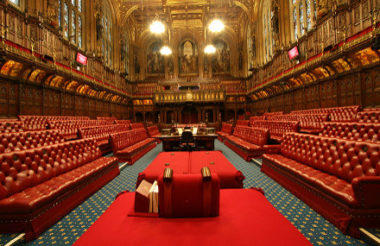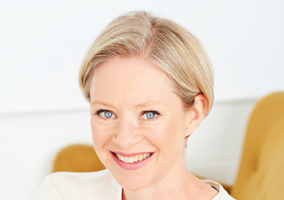Members of the House of Lords have used a debate on the Lobbying Act to criticise charities over a lack of transparency, particularly around donations and campaigning.
The House of Lords was debating the impact that the Lobbying Act has had on the charity sector, with a number of peers raising concerns that the legislation has hampered legitimate campaigning activity.
But Lord Wallace of Saltaire, the Liberal Democrat peer who shepherded the Lobbying Act through the Lords in 2014, said that during those discussions he “became increasingly sceptical about the motivations of some of those resisting the legislation”.
He said that some “leading development charities” had told him they did not want to have to register as third party campaigners because of the impression it would give donors, as it would “tell the little old ladies who give us money that we are a campaigning organisation as well as working for the poor”.
But he questioned whether charities' approach was the right one.
“If they are campaigning organisations, they should be transparent about that and not attempt to hide it from those whom they pursue so hard for funds,” he said.
Wallace said he supported the proposed amendments made by Lord Hodsgon’s review of the act and regrets that the government has not introduced them. But he said there should be other measures to force charities to be more transparent.
“The absence of a legal obligation for transparency in reporting significant sources of income allows foreign donors, companies with strong economic interests and others to fund think tanks and educational and religious charities that promote their vested interests without the British public understanding what is happening,” he said.
Wallace said that the Institute of Economic Affairs, Taxpayers’ Alliance and the Global Warming Policy Foundation were examples of organisations that should be more transparent and said there should be “legislative changes the next time Parliament addresses charity regulation and third-party campaigning”.
‘Charities have gone beyond their remits’
Lord Suri, a Conservative member of the house, said that he felt some charities had gone “beyond their remits to engage in political campaigns, using donations from members of the public and government grants to do so”.
He said there had been a “collapse in trust in charities in this country” and that the recent safeguarding scandal had “brought shame on the sector”.
This means, he said, that “charities ought to focus on their charitable activities, rather than attempting to become similar to think tanks in producing policy reports, lobbying and running campaigns during elections and referenda.”
But Suri said he sympathises with the sector as the wording of the rules is “unclear” and said: “If clearer legislation cannot be produced in amended form, it would be a magnanimous gesture for the Government to lay out in clear English the precise rights and obligations of third-party organisations.”
‘Reform needed urgently’
The debate was called by Lord Harries of Pentregarth, a retired bishop, to urge the government to revisit proposed amendments which would have benefitted charities.
Harries said: “The present legislation involves third-party campaigners in a disproportionate amount of time and expenditure trying to conform to it, and it causes areas of uncertainty about whether they are conforming to the law, which may inhibit them from campaigning.”
He added that: “There are important things to be done irrespective of Brexit, and one of them is improving the ill-thought-out and chilling legislation of part 2 of the Lobbying Act.”
Charities have long said that the act is having a chilling effect on their campaigning activity. A number of Lords yesterday referenced research from the Sheila McKechnie Foundation which found that 68 per cent of charities had changed their campaigns because of the legislation.
When the act was introduced it was agreed that it would reviewed. That review was carried out by Lord Hodgson and made a number of recommendations, such as shortening regulated periods and shifting the focus to the intent of the activity, that charities say would help to give them confidence to campaign.
‘Anything but Brexit’
The government has said that there is not space in the legislative timetable to make amendments. It has promised to work with the Electoral Commission and charities on new guidance.
However Lord Kennedy of Southwark, a Labour peer, said he was not convinced by the government’s reason.
“I have been a member of this house for only eight years, but I can confidently say that this is one of the quieter periods for legislation that I have experienced in that time,” he said.
He added that he expected a bill with the proposed reforms would be received positively in the Lords, and said it would be unlikely to be “bogged down in lots of amendments”.
He added that: “It would actually be a very positive experience for us all to have the opportunity to get away from Brexit and talk about something else, so the government might find that such a Bill was very welcome.”
Government response
The motion that the house takes note of the impact of the legislation on charities was approved.
Giving the government response, Lord Young of Cookham said there were still no immediate plans for legislation, but that Hodgson would be meeting Cabinet Office ministers shortly.
He reiterated the government’s support for charities campaigning within the law, and said: “Much of the campaigning undertaken by such third parties is conveying their views about policies and issues. Under charity law, charities have the right to undertake campaigning and political activity where it supports their charitable aim, where trustees consider it to be an effective use of charitable resources, and provided that they do not engage in party politics. Electoral law does not change this.”
He said new guidance from the Electoral Commission should be published early next year.
Cookham also said he did not believe charities had been unduly impacted by the legislation.
“In a nutshell, the 2014 Act did not target charities and has never prevented charities or other organisations from campaigning in line with the law. In the 2017 general election, 68 charities registered as third parties with the Electoral Commission, which was an increase from 2005, when 25 charities registered,” he said.
Bond: ‘Government must show it is serious’
Bond, the international development umbrella body, has been working towards reform of the Lobbying Act, and today said that the government must act.
Claire Godfrey, head of policy and campaigns at Bond, said: “The fact remains that 68 per cent of charities have had to change their campaigning as a result of the Lobbying Act and 51 per cent say it has affected their ability to achieve their mission.
“These numbers cannot be taken lightly. The only way the Government can show it is serious about helping “civil society recover its confidence to speak into public life” [Matt Hancock] would be if they took forward Lord Hodgson’s amendments. It’s a travesty that the voices of the vulnerable and marginalised people that charities work with and support are being silenced.”
|
Related articles












